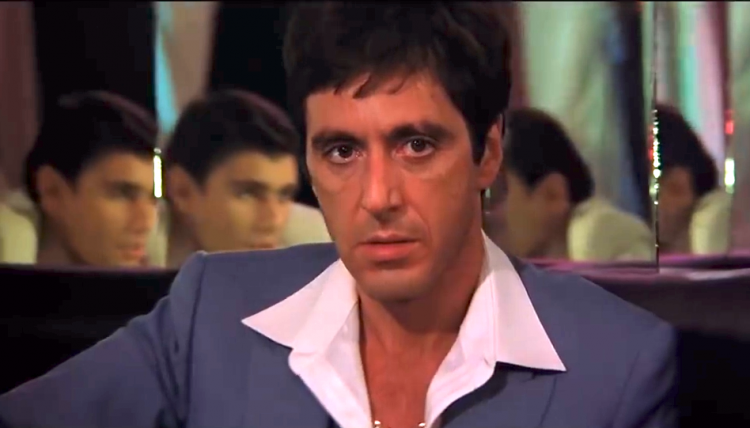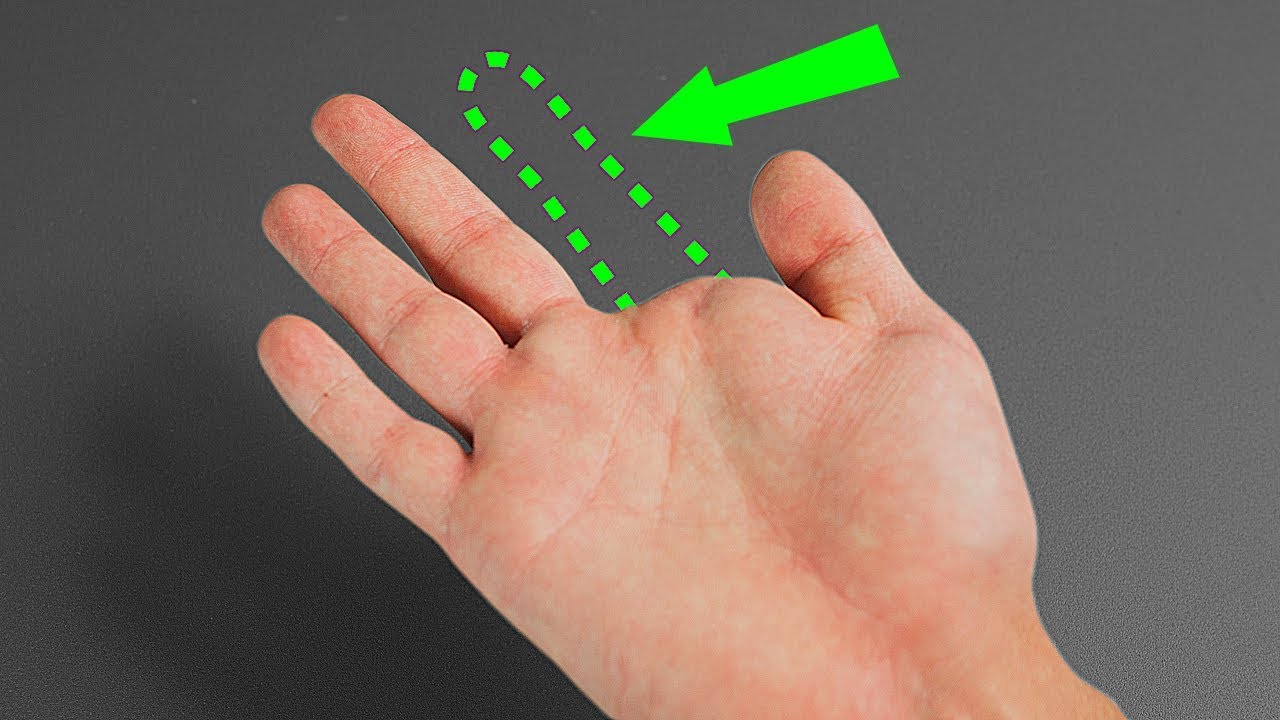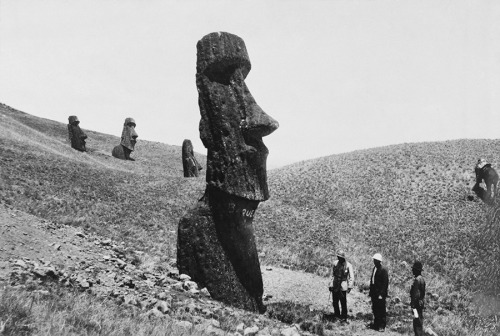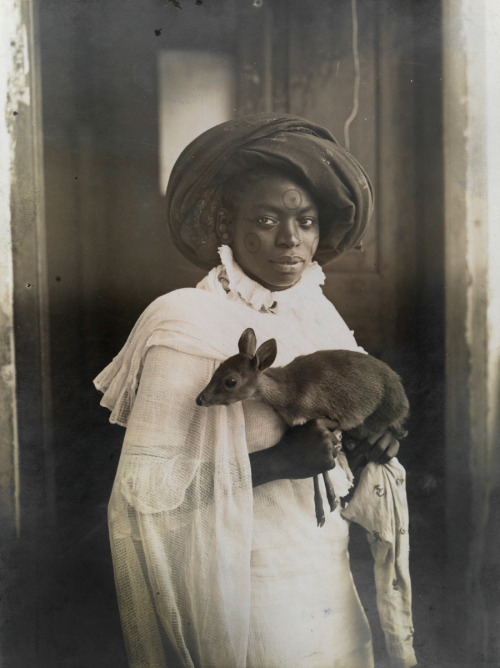


In a nostalgic video essay, Julian Palmer of The Discarded Image took a look at the rather distinctive film soundtracks of the 1980s, how they were used to set the mood of the film and how they correlated to what was happening around the world. Among the films Palmer used to convey his message were Scarface, American Gigolo, A Clockwork Orange and Top Gun.
The 1980s were a decade where electronic synth music really hit its stride. For this technology was still in its infancy and was therefore primal in its implementation. So too many looking back it often feels dated. In many instances I tend to agree by thought there are films where the score perfectly synergized with the film’s aesthetic
The post The Distinct Soundtrack of Films Made in the 1980s appeared first on Laughing Squid.

Mind Warehouse has created a fascinating video where they demonstrate how to do ten simple magic tricks that anyone can execute at home for friends and family.
Music in Objects is a wonderful video series by sound designer Matthew Simonson, who seeks out the various sounds and tempos that can be created by a single commonplace item at a time. For the first three videos of the series, Simonson used items such as paper, a bicycle and a can of oats to compose brilliantly mixed danceable songs.
In each video, I take an object, record the sounds it makes, and make music using only sounds I recorded from that object. I never have any idea what I’m going to make or how it’s going to turn out until I’m making the piece.
The post Music in Objects, Brilliantly Mixed Songs Composed Solely From Individual Commonplace Items appeared first on Laughing Squid.
On February 18, 1969, the Jimi Hendrix Experience played the first of two shows at London’s Royal Albert Hall. The band had played the venue previously, on November 14, 1967, on a bill with Pink Floyd, the Nice, the Move and other sonically adventurous bands of the time. This time, however, the Experience would be the headliner, playing first on the 18th and again on the 24th to a sold-out house.
Jimi’s great talent had grown in the 15 months since the 1967 show. Regular touring had honed his free-form playing, while his extensive studio work had seen him develop into a brilliant composer and visionary producer. Unfortunately, escalating tensions between Hendrix and his band—bassist Noel Redding and drummer Mitch Mitchell—had begun to take a toll on the group’s performances. A European tour from January 8 to 23 had been a mess. The band performed lethargically, and Hendrix was uneasy with the audiences’ requests for them to play their recent hit, “All Along the Watchtower.”
He was also unhappy that his manager, Mike Jeffrey, had sent a film crew along to record the event for a television special. Jeffrey had never asked for Jimi’s creative input on the project, and Hendrix was concerned about production matters. He was especially adamant that he be allowed to choose his own engineer for the upcoming Royal Albert Hall performance, going so far as to send a memo to his manager on the subject.
In fact, Jeffrey did have an ulterior motive. Beyond the television special, he was hoping the Europe shows would provide enough recorded material for a live album, which he hoped to release that June. Once the live album was out of the way, Jeffrey planned to get another studio album out of the Experience in time for the lucrative Christmas season.
The live album was paramount to Jeffrey’s plans, but the uneven performances on the European tour had made him concerned that he would have nothing satisfactory to release. Originally, the Royal Albert Hall performance was a one-night stand, on February 18. As a safeguard, Jeffrey booked the band for the second performance, on February 24.
Following the European tour, Jimi flew to New York City to oversee the construction of his studio, Electric Lady. While the trip gave him a reprieve from his problems with the Experience, the time away only served to exacerbate the tensions between them. There were further problems awaiting him when he returned to London. On February 17, while rehearsing at the Albert Hall, Hendrix became aggravated by the constant feedback created between his guitar and the PA system. The mobile recording unit hired for the event was also experiencing electronic interference that would make the recordings unusable.
Hendrix placed a call to Chas Chandler, his former manager, and asked him to come for assistance. “It was a shambles,” Chandler told John McDermott in his book, Hendrix: Setting the Record Straight. “I ended up running both shows for him, trying to get everything right. I hadn’t been ‘hired,’ I was there to help out a friend.”
Although the recording equipment problems with were worked out, no one could guarantee that Jimi’s guitar wouldn’t suffer from feedback. To minimize the possibility, two separate sound systems were used: one for the venue and another for the mobile recording unit. This is why Jimi can be seen singing into three microphones in footage from the concerts.
Despite the preparations, the February 18 show was a disaster. Jimi played brilliantly, but Redding and Mitchell were lifeless. Chandler was irate with them. “It truly was one of the worst shows I had ever seen,” he told McDermott. “Up until that point I had been a supportive of the group, because I thought that they made for a good unit. Now I felt it was time they got thrown out.”
Under the circumstances, the show gave Jeffrey little that he could use for a live album. Rehearsals were scheduled for the days before the February 24 show to try to salvage what little opportunity remained. As it turned out, the second show was much better. Although the band lacked the fire and energy they’d displayed at earlier shows like 1967′s Monterey Pop Festival, they played brilliantly. Hendrix threw out his usual set list and instead performed three of his own blues songs: “Hear My Train a Comin’,” “Red House” and “Bleeding Heart.” The group turned in solid versions of “Little Wing,” Voodoo Chile” and “Foxey Lady,” as well.
And while Hendrix didn’t believe in giving encores, he gave one to the Albert Hall crowd, bringing out Traffic’s Dave Mason and Chris Wood and percussionist Rocki Dzidzornu to perform a stirring version of “Room Full of Mirrors.”
Oddly, for all the fireworks happening onstage, the audience was exceptionally polite. They remained seated and quiet, clapping politely, as if at the symphony. Perhaps it was down to the house lights: the film crew had asked to have them left on to provide enough light for the film stock. Under the circumstances, the audience might have felt more self-conscious than usual.
Not surprisingly, the shows were the last European performances by the Jimi Hendrix Experience. On March 30, the band began a lengthy U.S. tour that would see Hendrix make his celebrated stand at Woodstock, on August 18, with a new band, Gypsy, Sun and Rainbows. The Experience had already imploded two months before, on June 29 at the Denver Pop Festival.
Performing that night in Denver, Jimi didn’t hold back the news. “This is the last gig we’ll be playing together,” he said. The original Jimi Hendrix Experience was finished.

Men observe the giant statues of Easter Island in Polynesia, December 1922.Photograph by J. P. Ault, National Geographic
If you've ever wanted to get up close and personal with three of rocks' most talented musicians, here’s your opportunity.
Richie Kotzen, Billy Sheehan and Mike Portnoy — better known as the Winery Dogs — have announced Dog Camp, their first-ever immersive program for aspiring musicians of all ages and levels.
The event is set for July 21 to 25, 2014, at Full Moon Resort in Big Indian, New York.
Attendees will be able to take part in instrument specific clinics and will learn about songwriting mechanics and the music industry. They'll even get to enjoy intimate performances by the Winery Dogs.
If you’re a guitarist, bassist or drummer, there’s a course path for you to follow. But Dog Camp promises to be a deeper experience; the campers will be living, hanging out and jamming together. You’ll also be able to ask the hosts as many questions as as you want — and Kotzen, Sheehan and Portnoy will initiate one-on-one and group sessions to help you realize your goals as a player.
I recently spoke to Kotzen and Portnoy about Dog Camp and what’s next for the band.
GUITAR WORLD: What was the reason behind the inaugural Dog Camp?
Kotzen: It was something that was brought to our attention by our manager. Billy and I have done our fair share of clinics and have also participated in Rock and Roll Fantasy Camp. The idea of being in a position where you can actually sit and talk and play with people who are buying your records or are listening to what you do is inspiring.
What will a typical day be like?
Kotzen: There will be a lot of one-on-one time and in groups. We’ll also have opportunities to play together, but not just cover songs. I really want to address improvisation and being able to unlock yourself and play with other people.
I also like getting involved in what I call “concepts." Asking yourself, “Why am I learning the instrument and what are my goals and objectives?” Then we can start talking about how you can get there. For me, I use the guitar as a creative outlet to express myself; my biggest ongoing goal is to make the connection between me the person and the music that you hear.
Portnoy: We plan to do a lot of things individually and collectively. The "collectively" being the Winery Dogs doing special intimate shows and situations where the three of us will be open to question-and-answer sessions and playing unique things people won’t normally get at a traditional concert.
Individually, we’ll be doing classes where we talk about our instruments, the business and industry and jamming with fellow musicians and campers. It’s going to be a very unique experience.
What would you like campers to take away from this experience?
Kotzen: The feeling of growth and knowing that you’ve learned something. This camp is an opportunity to share ideas and music and to grow as a musician and as a person. We may be the ones being asked the questions, but sometimes during the reveal I’ll gain a new found perspective on myself. I’m really looking forward to that.
Portnoy: I think it’s important for campers to remember that making music is not just about playing a drum solo in your bedroom or concentrating solely on technique. It’s about communicating with other musicians. For me, the interest is getting into it with other musicians and talking about it in a band scenario.
What can you tell me about the new Special Edition Winery Dogs compilation?
Portnoy: The Winery Dogs Special Edition is a two-disc CD set that has a re-issue of the album on the first disc. The second disc contains 10 live tracks from Japan, including several covers and unreleased songs. It also has an expanded booklet with live shots.
We also have the Dog Treats box set, which, in addition to the Special Edition set, includes a bonus disc of all of the demos we did in 2012 (before the album), a DVD with the music videos and interviews, a big booklet with my studio diary from the making of the record and little “treats” like a dog patch and dog tag.
Mike, why did you decide to include a studio diary?
Portnoy: I’ve always been a stickler for detail and documenting things and organizing facts. When I was doing the studio diary, I wanted to get very specific about how a song came together. It’s interesting to read it and see the history behind every song. Like which ones came from Richie or which ones we came with on the spot or which songs morphed from other songs and demos. It’s a cool insight into not only the making of the record, but also the very beginning of the relationship of the guys in the band.
Can you give us an update on your tour plans and new Winery Dogs music?
Portnoy: We’ll be out on the road April to August and plan on getting the follow-up album out in 2015. We’ve already written one new song that’s going to be in the live set.
You’ve all been involved in other bands and projects over the years. What do you enjoy most about being in the Winery Dogs?
Kotzen: I really enjoy the notion of being in a band where everyone is able to share the load. It’s kind of like being on a really strong basketball team in the sense that you have three guys who are all capable of putting up points instead of just relying on one guy. That’s my favorite aspect of all.
Portnoy: For me, it’s about working with Billy and Richie. They’re musicians I have the utmost respect for and am a huge fan of. Stylistically, I enjoy being able to play something that is straight-up classic rock. I love prog and am the ambassador to prog music for this generation, but my musical taste is very broad. Every once in a while, it’s nice to get into Zeppelin, Who and Beatles mode, and I get to do that with the Winery Dogs.
For more information on Dog Camp, visit winerydogcamp.com. For more about the Winery Dogs, visit thewinerydogs.com.
James Wood is a writer, musician and self-proclaimed metalhead who maintains his own website, GoJimmyGo.net. His articles and interviews are written on a variety of topics with passion and humor. You can follow him on Twitter @JimEWood.
Additional ContentRelated Artist:
Chile Indómito – Número 8 – Diciembre 2014
Para hojear y leer la revista, se debe pinchar sobre la imagen superior.
Para descargar los Número de Chile Indómito en PDF, directamente desde nuestro servidor, visita el siguiente link:
http://chileindomito.cl/descarga-directa-de-chile-indomito-en-pdf/
![]()

A young Kenyan woman holds her pet deer in Mombassa, March 1909.Photograph by Underwood and Underwood
Sixty-five-year-old soul singer Charles Bradley and the Budos Band are streaming their smoldering cover of Black Sabbath's "Changes," and you can hear it below.
Bradley's new version was previously available only on a limited-edition Record Store Day Black Friday 7-inch disc. Check it out below and tell us what you think!
The original version of the song appeared on Black Sabbath, Vol. 4, which came out in 1972.
Bradley's latest album, Victim of Love, came out in April on Daptone. For more about Bradley, visit thecharlesbradley.com. Be sure to check out his current tour dates, which are listed below the Soundcloud player!
Charles Bradley tour dates:
December 31 - Pittsburgh, PA @ First Night (Highmark Stage)
January 16 - Washington, DC @ 9:30 Club
January 17 - New York, NY @ Bowery Ballroom
January 18 - Brooklyn, NY @ Music Hall of Williamsburg
January 24 - Woodstock, NY @ Bearsville Theater
January 25 - Uncasville, CT @ The Wolf Den (Free Show)
February 5 - Northampton, MA @ Pearl Street
February 6 - Providence, RI @ The Columbus Theatre
February 7 - Boston, MA @ House of Blues (with Galactic)
February 8 - Philadelphia, PA @ Electric Factory (with Galactic)
February 22 - Wellington, New Zealand @ NZ Festival (James Cabaret)
February 23 - Wellington, New Zealand @ NZ Festival (James Cabaret)
February 25 - Perth, Australia @ Perth Festival
February 28 - Adelaide, Australia @ Adelaide Festival (Free Opening Night Festival)
March 2 - Sydney, Australia @ The Basement
March 4 - Brisbane, Australia @ The HiFi
March 6 - Melbourne, Australia @ Corner Hotel
March 7 - Melbourne, Australia @ Melbourne Zoo Twilights
March 8 - Meredith, VIC, Australia @ The Golden Plains Festival
March 9 - North East Tasmania, Australia @ Panama Fest
Related Artist:
by Lars Gotrich
Ryley Walker.
Sometimes, friends of friends are the best way to discover new music. Or, at the very least, friends of artists you never want to miss live. This was the case with Ryley Walker, a close friend and frequent tour buddy of American Primitive guitarist Daniel Bachman. Walker would accompany Bachman in seriously raucous and psychedelic live sets only a couple years ago, and Bachman would tell me, "Just wait 'til you hear Ryley's stuff." Well, now it's here — and it's not at all what I expected.
With the charming swagger of jazz-folk troubadour Tim Buckley and the resonant, full picking style of Bert Jansch, "The West Wind" comes from Walker's first widely available release, a three-song 12". With acoustic guitar in hand and a voice like browned butter, Walker swings and sways in a lush string-and-piano arrangement right out of Buckley's Starsailor; it slowly picks up to a swirling gallop without bucking the rhythm.
The West Wind comes out digitally on Oct. 22 — and as a 12" EP on Nov. 29 — via Tompkins Square Records. Ryley Walker is currently touring Europe with Daniel Bachman.
9())